Why you should get to know your local organic farm shop
For over a year and with the help our amazing Soil Association Farmer Ambassadors network, we’ve been spreading the word about the benefits of agroecology and its potential to address our planet’s climate, nature, and health crises.
Championing the merits of nature-friendly farming is something that ambassador Anna Elliot is particularly well-versed in. Through the three farm shops she runs as part of her family-owned farm, Eversfield Organic, she’s had years of experience in learning how to impassion people about where their food comes from, as well as in communicating the importance of sustainable and organic systems. We spoke to her about the value in agroecology, shopping and selling locally and more.
What made you decide to go organic at Eversfield Organic, as well as open your own farm shops?
Eversfield Organic was halfway through the four-year process of converting to organic when we acquired it in 2002, so we were fully organic by 2004. There are so many wonderful benefits to organic, and we’ve always believed in the value of working with nature closely, so it made sense for us to farm following organic principles from the start.
As for the farm shop, we were really invested in finding local routes to market and connecting our community to their food. We began by selling organic meat online, but quickly expanded to include other produce, and soon after we were able to open our first brick and mortar shop. This all happened when most people were pulling out of the high street instead of going into it – so it was interesting timing! - but we saw it as a good opportunity to build a loyal customer base and contribute to the local economy. So, we took on an old pet shop in Tavistock and the old Edinburgh Woollen Mill clothing shops in Totnes and Marlborough and redesigned them completely, turning them into farm shops that do more than simply stock food and drink. They’re now amazing places that capture the spirit of our farm - where people can learn about the value in organic systems, taste organic produce first-hand, and engage with organic experts and a wider community that cares deeply about sustainable food and farming.
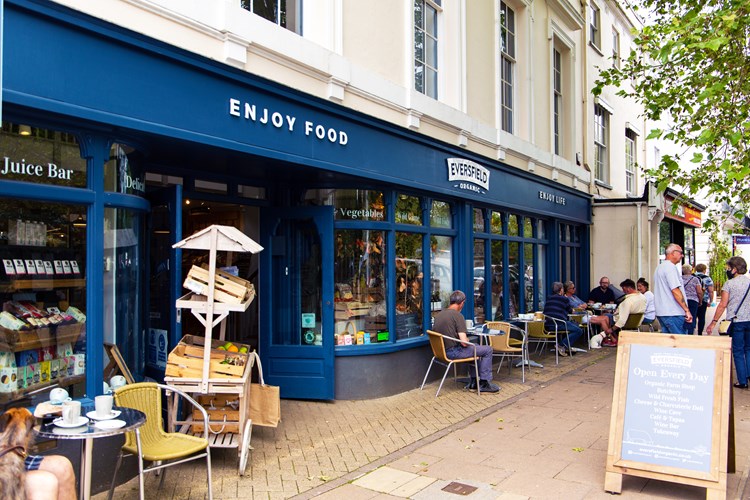
We pride ourselves on offering something unique at our Eversfield Organic farm shops. To my knowledge, we’re one of the only farm shop groups (if not the only group) selling 100% organic produce, which includes organic herbs that you can’t find in the supermarket. Both in Totnes and Marlborough, we’ve also opened organic cafes, giving people a place to gather and sample our organic produce for themselves.
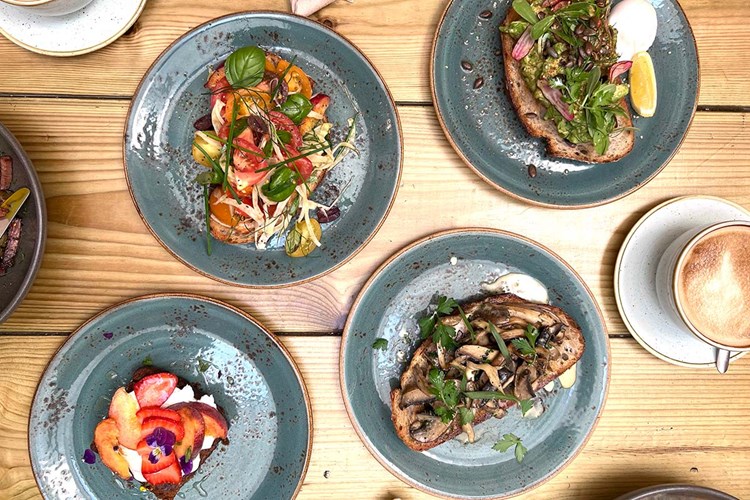
How do you work with the principles of agroecology on your farm? Are there any practices that you swear by, in particular?
We employ agroecological methods on our farmland, where we farm mostly livestock, and in our market garden, which is devoted to growing vegetables, fruits, and herbs.
Regarding our livestock areas, we’ve found that by boosting biodiversity levels, we’ve been able to reduce our reliance on natural fertilisers and get additional gains that we were not getting before. What’s more, both by applying manure to our soils and composting it for longer periods, we’ve helped our soils in a variety of ways, by:
- Increasing their amount of organic matter
- Increasing their organic carbon and aggregate stability
- Reducing their bulk density and compaction
- Helping them to infiltrate and retain water more effectively.
We also do a lot of rotational grazing on our farm, and have tried mob grazing as well. Mob grazing ensures that you’re not over-grazing your farm’s grass leaves so they can grow back stronger, creating better food for your cattle. While there are natural fertilisers that you can use as an organic farmer – like sand and seaweed extract - to help you maintain robust grasslands, simply following nature-friendly practices like these can save you time and money, and has proven to be more effective and sustainable for us, too.
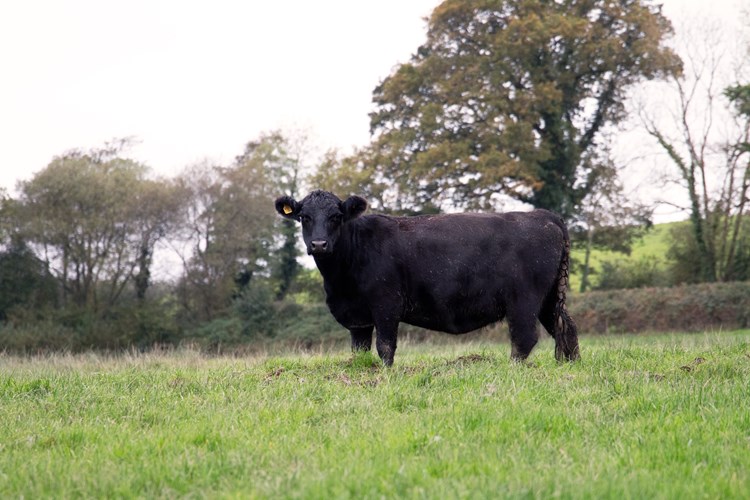
As mentioned, we also have a market garden, in which we use the following agroecological methods:
- Companion planting with 'smelly' flowers and herbs – We are distracting pests from feasting on our crops by planting alliums among our plant beds, which tend to confuse them with their smell. Marigolds and tarragon are also effective
- Growing decoy crops – Again, to deter pests from our main crops, we grow plants that we do not mind getting eaten, so pests can latch onto them and leave our more appetising produce alone
- Prioritising polyculture – We avoid growing large areas of single crops, to decrease the chances of pests and diseases ‘finding’ their preferred crop type and devastating large areas of the garden. This means that most of our plant beds have a minimum of two interplanted crops, and in addition, we avoid planting some family types next to each other
- Monitoring and supporting crop health – We look for any way we can make our crops feel like part of the wider ecosystem. It is easy to get caught up in trying to fend off every last pest, but we’ve found that if you do that, another is likely to appear anyway – so we focus more on keeping our plants healthy alongside incorporating integrated pest management techniques
- Leaving some areas of our market garden untouched – Permaculture teaches you to break your growing areas into ‘zones,’ with Zone 1 being the area you interact with the most and Zone 5 the least. We try not to tamper with Zones 4 and 5 in our garden at all, which includes leaving weeds to grow (that are not affecting our other crops). These double-up as great habitats and food sources for pests that would otherwise venture into Zones 1 – 3 and potentially damage our important crops! This also extends to leaving most wildlife alone – if it is not hampering your food production, it is likely helping you. Our market gardener, Kelvin, has said he has spotted a toad living among our lettuces that he always feels the need to apologise to when he disturbs him, as he is probably doing a better job of controlling our slug populations than we ever will...! Nature is amazing when left to do its thing.
Ultimately, following the principles of agroecology in both our farm and market garden has produced some extraordinary results so far. Before we obtained Eversfield Organic, it was a dry feed factory that was churning out non-organic grass. The environment was barren. By nurturing our soils and focusing on biodiversity, we now bear witness to a thriving, dynamic landscape. Just the other day I had lunch on our farmland and saw something close to 40 butterflies in five square metres! It’s incredible to be a part of such a change.
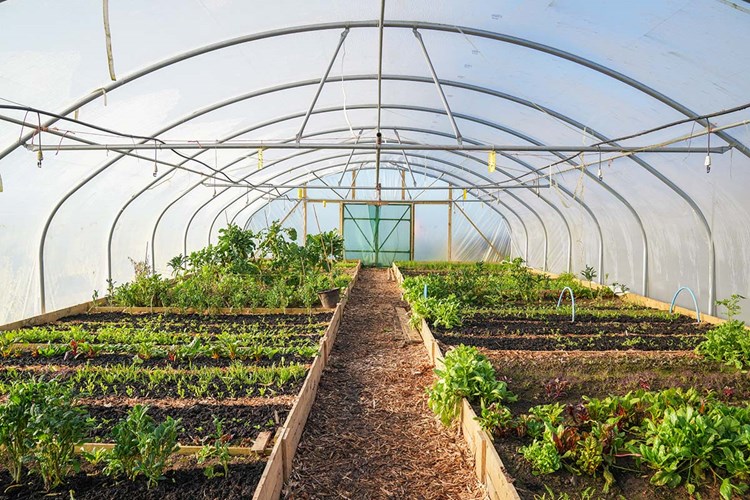
From your experience, what you would you say are the main benefits of having your own organic farm shops, and selling directly to the people in your area?
As mentioned, one of the main reasons we decided to create a farm shop (both physically and online) was to sell to our customers directly, to connect them to their food and for the advantages that local routes to market offer. When you sell your wares via supermarkets, they take a lot of the profit margin from you, especially when it comes to fresh produce that has a short shelf life. We wanted to find a way to sell ourselves and champion our organic values, which the farm shops have allowed us to do.
They’ve also enabled us to create a closed loop sustainability model for a lot of our products, which works like this:
- We list our produce on our ecommerce shop
- If it is not selling online, we put it up for sale in one of our physical shops
- If it is getting close to the produce shelf life and still has not been sold, we offer it to the Dartmoor Inn and Farm shops to be used in the restaurant and cafes. We also have our kitchen in Wincanton where we make our own pasties, sausage rolls, broth, curry etc - another avenue for surplus stock
- If it is not used at any of these places (which is highly unlikely!), we then compost it back onto the farm or in our market garden.
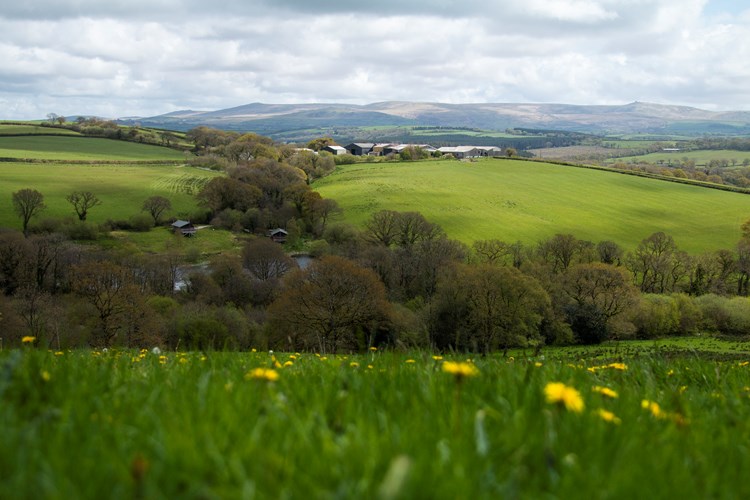
In addition, the farm shops have clear benefits to our consumers. People can find out about the provenance and traceability of their food and have full confidence in where what they’re buying has come from. Like I said – our shops are 100% organic, so all the products within them have been made following organic standards.
I’d highly recommend other farmers who have been curious about opening their own farm shop to pursue the idea, though it’s worth noting that there are challenges, too. If you’re serious about making your shop a success, doing market research beforehand (and getting to grips with social media!) is vital. This should include speaking to the people in your area to get a good sense of what they’d like you to sell and what they might need from you (are many people able to travel out to where your farm shop would be, for instance, or would it better for you to set something up online?). It’s also been a competitive market since the pandemic, as lots of people have become more interested in sourcing their food from other places than the supermarket… though this, of course, also suggests that there’s never been a better time to take the leap!
Why should people get to know their local organic farmers? What are the benefits of supporting organic systems?
It’s important to understand where your food has come from, and if you communicate with the farmer who produced it, all the better – it’ll help you to build trust in what you’re buying and eating. Knowing your local organic farmers and their processes will also help you to avoid greenwashing when stocking up your cupboards, as you’ll be aware of exactly how your food has been made. Building these connections is interesting as well for educational reasons. A lot of farmers have been doing what they do for generations and have some fascinating stories about their life in the field!
Further, by buying organic food from your local farm shop, you can:
- Support a healthier climate, by choosing produce that has not racked up a lot of food miles (and related CO2 emissions)
- Support organic farmers and growers getting paid a fair price – organic farms can only continue to exist if people vote with their wallets and support them. When you buy organic produce, you are supporting systems that help to tackle climate change, boost biodiversity, nurture soil health, and more
- Keep money in the local economy, which helps to sustain local producers and create local jobs
- Access local and seasonal ingredients easily
- Support higher animal welfare (did you know that the Soil Association has the strictest standards for animal welfare in the UK?)
- Reduce food waste, as you do not need to buy products in bulk.
Becoming familiar with your local farm shop might also help you to discover something new, like heritage vegetables or different types of cheese – empowering you to expand your palate, while ensuring the food on your plate has been put together with the utmost care for our planet. Everybody wins!
What’s been the impact of your farm shop on your local community?
Our farm shops have been designed to be fun, nourishing, and interactive places, where people can experience the spirit of – as well as eat and buy – organic. We have worked hard to encourage our community to visit and try our food, and have:
- Conducted tasting events (like cheese and wine tastings)
- Hosted ‘nose to tail’ butchery demonstrations
- In Totnes, hired out one of our rooms for educational ‘away days.’ We encourage children, especially, to come to the shop and learn about sustainable food and farming from an early age
- Started doing barbecues outside on Fridays and Saturdays over the summer (weather permitting)!
We’ve also recently established a ‘Food to Go’ service in Marlborough where people can pick up tasty, organic treats – such as slices of cake or sausage rolls – for when they’re on the move. So, we are doing a lot to become useful to as much of the community as possible, by providing a range of services for people at every age – from busy adults to curious classrooms of kids, and everyone in-between.
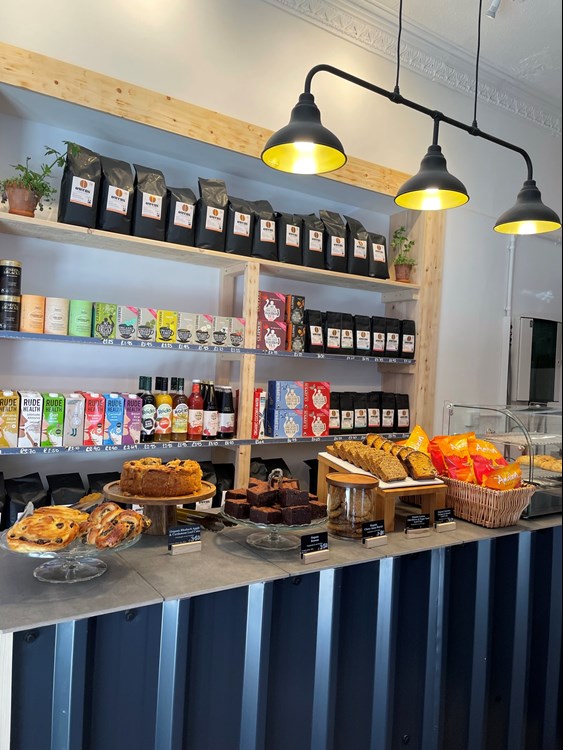
Anything else you’d like to add?
There are a ton of ways for people to feel closer to their food, and benefits in doing so. We highly recommend looking for volunteering opportunities at your local farm if you’ve got time – The Community Farm is a great one. If you love travelling and don’t mind going further afield, you might also want to research the Worldwide Opportunities on Organic Farms (WOOFF) project. You can literally go around the world and work on organic farms, and in return, you’ll have free (delicious) food and accommodation!
At Eversfield Organic, we’re always trying to bridge the gap between people and their plates – helping them to understand how their meals are made, and the importance of growing and sourcing food in a sustainable way. We think food education is a big part of changing the future of food and farming for the better, so along with the events we host in our farm shop, we’re constantly on the road teaching kids all about organic agriculture and food production. We recently took a sausage machine to Michael Morpurgo’s charity, Farms for City Children, to do a live sausage-making demonstration, as an example! We can all make an impact, both by learning about our food and supporting organic and nature-friendly systems – investing in the change we want to see in the world. The more we all care and come together as a community over our food, the more likely we can make a real difference for our climate, nature, and health.


